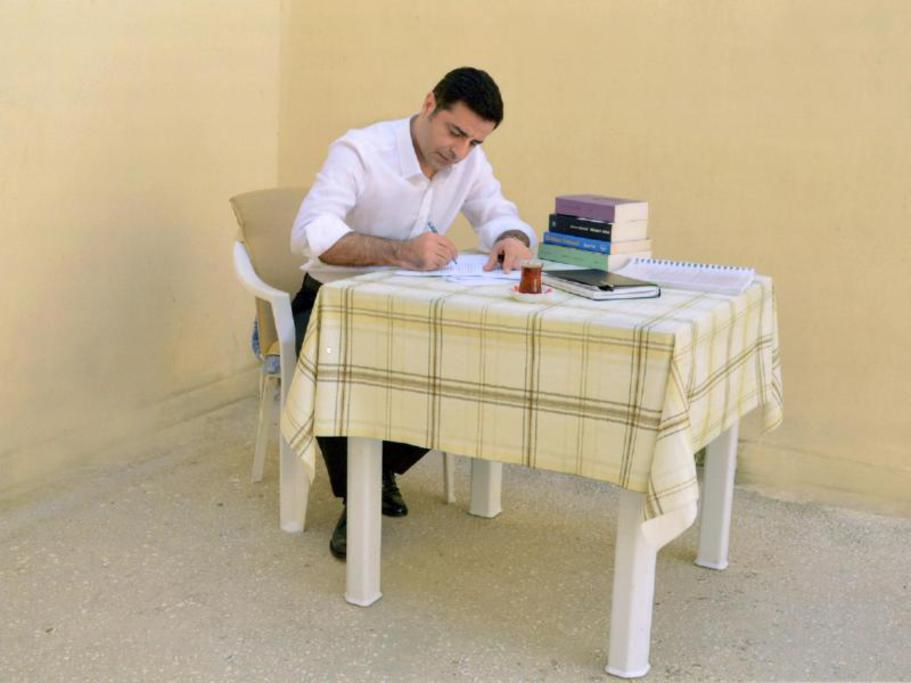A Turkish court sentenced Selahattin Demirtaş, former co-chair of the pro-Kurdish Peoples’ Democratic Party (HDP), to more than two years in prison for remarks made between 2015 and 2017, alleging that they denigrated state institutions, the Gazete Duvar news website reported.
Demirtaş, already imprisoned since November 2016, faced multiple charges under Article 301 of the Turkish Penal Code, which penalizes publicly denigrating the Turkish state and its institutions. The charges were related to speeches in Diyarbakır, Mardin, Ankara and Mersin, where he criticized President Recep Tayyip Erdoğan and then-prime minister Ahmet Davutoğlu, accusing them of supporting terrorist organizations such as the Islamic State in Iraq and the Levant (ISIL).
The court proceedings took place at the Mersin 14th Criminal Court of First Instance, where Demirtaş participated via the Audio-Visual Information System (SEGBIS). The courtroom was packed, with many people also observing the trial from outside the room.
In his defense Demirtaş strongly denied the charges, arguing that his statements were part of his duty to criticize the government and defend human rights. He challenged the notion of the sanctity of the state, saying that states often oppress freedoms and should not be immune to criticism. “The state is not sacred; why should the Turkish state be sacred? I leveled criticism because of serious human rights abuses,” he said, referring to incidents like the prolonged delay in burying civilians killed during clashes in Kurdish regions.
At one point during the trial, the presiding judge interrupted Demirtaş’s reading of his defense, mistaking it for reading from a book. “This is not a book; this is my defense. Does it sound like a story to you?” Demirtaş retorted.
An observer who applauded Demirtaş was removed from the courtroom, underscoring the tense atmosphere. Despite interruptions, Demirtaş concluded his defense by criticizing the broader implications of his imprisonment on Turkey’s democracy.
The court combined 10 separate cases into one, initially sentencing Demirtaş to a total of three years but later reducing it to two-and-a-half years. The court, however, did not suspend the sentence or apply further reductions.
Demirtaş’s lawyer, Özgür Özbek, argued that the speeches fell within the scope of freedom of expression, especially given the political context. He requested that the court consider the prevailing conditions when the statements were made. The court, however, rejected this request.
Demirtaş has been imprisoned since November 2016 on charges related to his political activities and speeches, which many international observers, including human rights organizations, have condemned as politically motivated.
In its 2020 ruling on Demirtaş, the European Court of Human Rights (ECtHR) ordered his release and said his “unjustified” detention pursued the ulterior motive of stifling pluralism and limiting freedom of political debate in Turkey.

